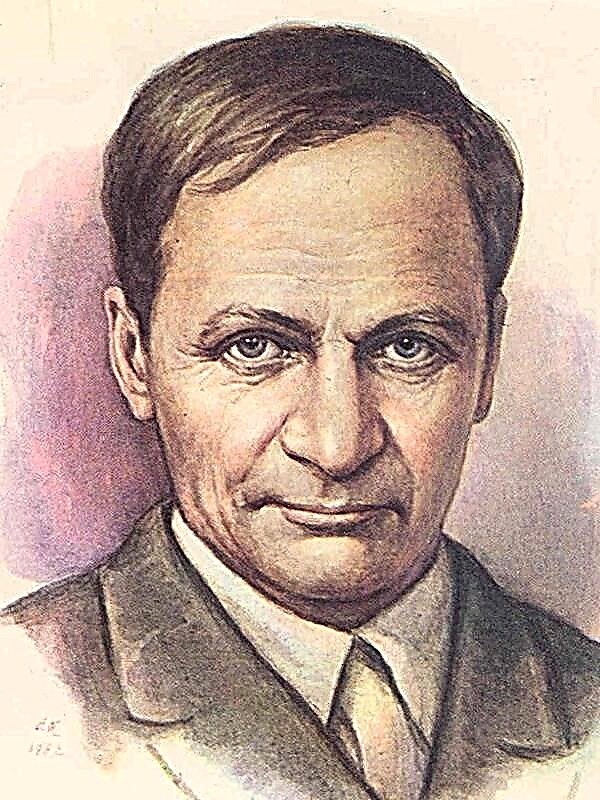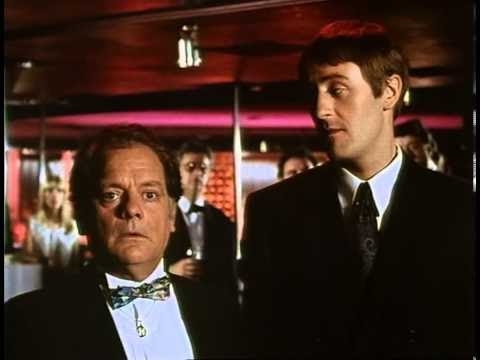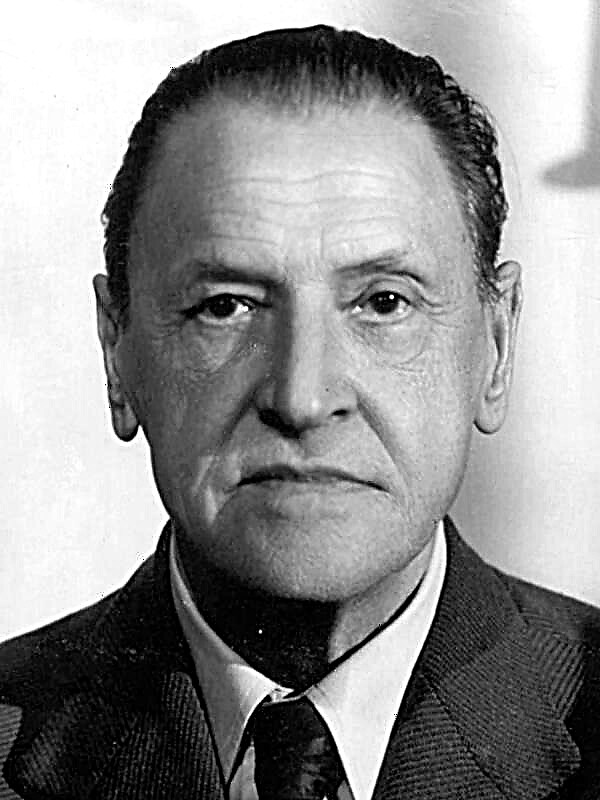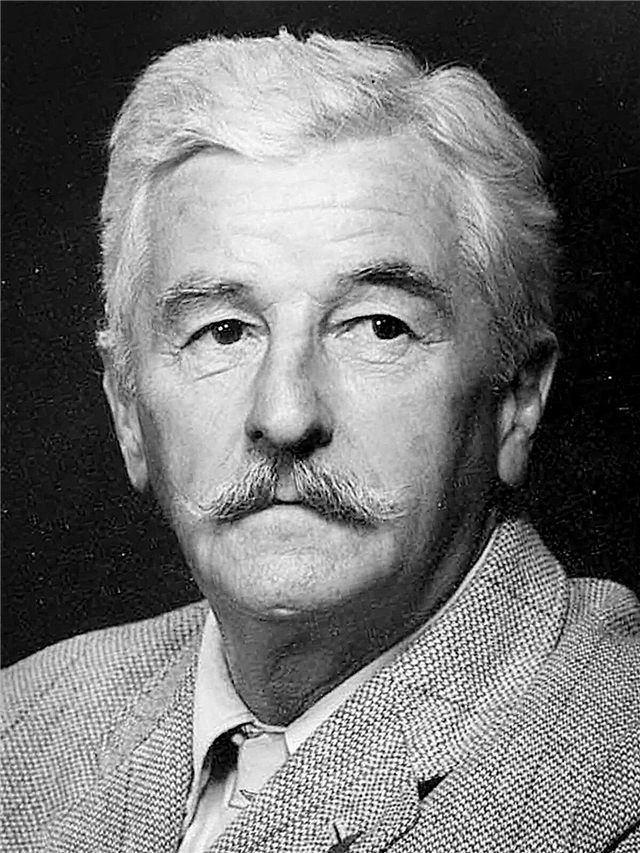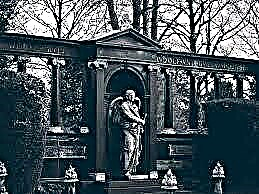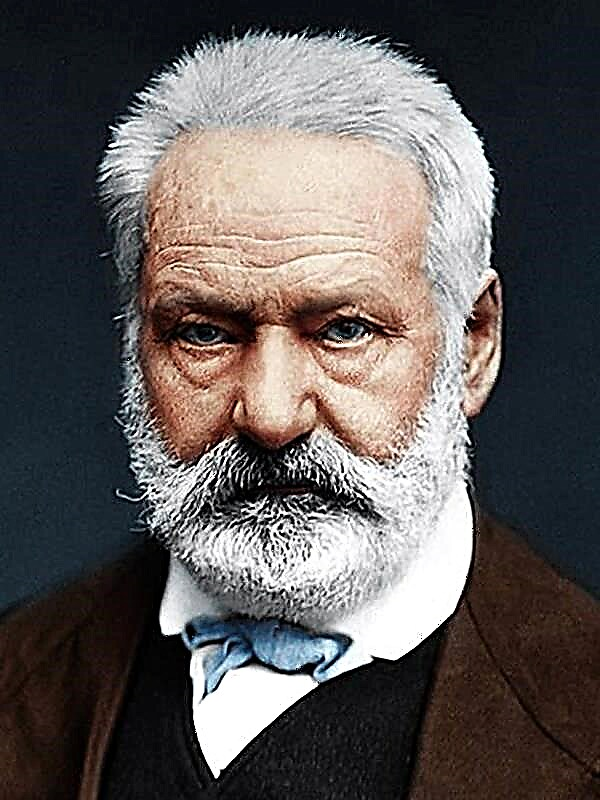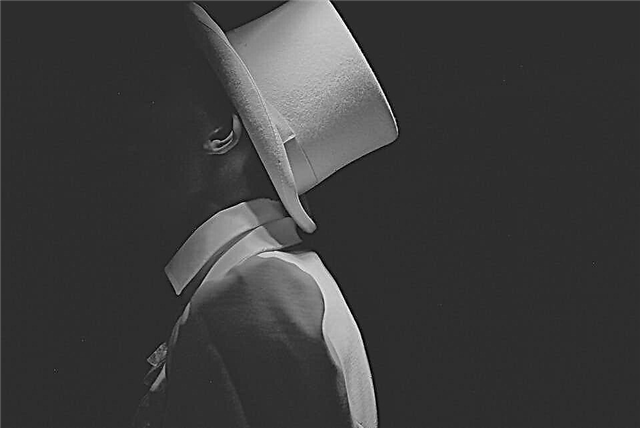The play opens with a scene in the salon of the high-profile intriguer Lady Sniruel, who discusses with her confidant Snake the latest achievements in the field of aristocratic machinations. These achievements are measured by the number of ruined reputations, frustrated weddings, incredible rumors put into circulation, and so on. Lady Sniruel's Salon is the holy of holies in the school of slander, and only a select few are admitted there. Itself, "wounded in early youth by the poisonous sting of slander," the mistress of the salon now does not know "more pleasure" than to discredit others.
This time, the interlocutors chose as a victim a very respectable family. Sir Peter Teesle was the guardian of the two Serfes brothers and at the same time raised his adopted daughter Mary. The younger brother, Charles Serfes, and Maria fell in love. It was this alliance that Lady Sniruel intended to destroy, not allowing the matter to be brought to the wedding. To Snake’s question, she explains the background: Mary, or her dowry, is in love with the elder Serfes, Joseph, who resorted to the help of an experienced slanderer, having met a happy rival in his brother. Lady Sniruel herself has a heart weakness for Charles and is ready to sacrifice many in order to conquer him. She gives both brothers sober characteristics. Charles is a “reveler” and “waster”. Joseph is a “cunning, self-loving, treacherous man”, “a sweet-talking rogue” in which those around him see a miracle of morality, while his brother is condemned.
Soon, the "sweet-talking rogue" Joseph Sherfes appears in the living room, followed by Maria. Unlike the mistress, Maria does not tolerate gossip. Therefore, she hardly tolerates a society of recognized masters of slander, who come on a visit. These are Mrs. Cander, Sir Beckbyt and Mr. Crabtree. Undoubtedly, the main occupation of these characters is washing the bones of their neighbors, and they own both the practice and theory of this art, which they immediately demonstrate in their chatter. Naturally, Charles Serfes also gets, whose financial situation, in the general opinion, is absolutely deplorable.
Sir Peter Teesle, meanwhile, learns from his friend, the former butler of the Serfes father Rauli, that uncle Joseph and Charles, Sir Oliver, a wealthy bachelor, both of whom are hoping for, inherited from the East Indies.
Sir Peter Teesle himself married just six months before the events described to a young lady from the province. He suits her fathers. Having moved to London, the newly made Lady Teesle immediately began to study secular art, including regularly visiting Lady Sniruel's salon. Joseph Serfes lavished many compliments here, seeking to enlist her support in his matchmaking to Mary. However, Lady Teesle mistook the young man for her ardent admirer. Having found Joseph on her knees in front of Mary, Lady Teesle does not hide her surprise. To correct the mistake, Joseph assures Lady Teesle that he is in love with her and only fears Sir Peter’s suspicions, and to complete the conversation, she invites Lady Teesle to her home to “look at the library.” Joseph is annoyed to himself that he was "in a precarious position."
Sir Peter is really jealous of his wife - but not to Joseph, of whom he has the most flattering opinion, but to Charles. The company of slanderers tried to destroy the reputation of the young man, so that Sir Peter does not even want to see Charles and forbids Mary to meet with him. Having married, he lost peace. Lady Teesle is completely independent and does not spare her husband’s purse. The circle of her friends also upsets him very much. “Nice company! He remarks about Lady Sniruel's salon. “Another poor man who was pulled up onto the gallows has not done as much evil in his entire life as these peddlers of lies, masters of slander and destroyers of good names.”
So, the respectable gentleman is in a considerable confusion of feelings when Sir Oliver Serfes comes to him accompanied by Rauli. He had not yet informed anyone of his arrival in London after a fifteen-year absence, besides Rauli and Tizla, old friends, and now he was in a hurry to inquire from them about two nephews whom he had previously helped from afar.
Sir Peter Teasle's opinion is firm: for Joseph, he “warns his head”, but as for Charles, he is “a dissolute fellow”. Rauli, however, does not agree with this assessment. He convinces Sir Oliver to make his own judgment about the brothers Serfes and "test their hearts." And for this, resort to a little trick ...
So, Rauli conceived a hoax, in the course of which he introduces Sir Peter and Sir Oliver. The Serfes brothers have a distant relative, Mr. Stanley, who is now in great need. When he turned to Charles and Joseph with letters of help, the first, although almost ruined himself, did everything he could for him, while the second escaped with an evasive reply. Now Rauli invites Sir Oliver to personally come to Joseph under the guise of Mr. Stanley - since no one knows him by sight. But that is not all. Rauli introduces Sir Oliver to a money-lender, who lends money to Charles at interest, and advises him to come to his younger nephew with this money-lender, pretending to be ready to act as a lender at his request. The plan is accepted. True, Sir Peter is convinced that this experience will not give anything new - Sir Oliver will only receive confirmation of Joseph's virtues and Charles's frivolous motivation. The first visit - in the birthplace of the false creditor Mr. Primeam - Sir Oliver deals to Charles. A surprise awaits him right away - it turns out that Charles lives in his old father’s house, which he ... bought from Joseph, not allowing his home to go under the hammer. From here his troubles began. Now in the house there was practically nothing left except family portraits. It is them he intends to sell through the moneylender.
For the first time, Charles Serfes presents himself to us in a cheerful company of friends who spend time drinking a bottle of wine and playing dice. Behind his first remark, an ironic and dashing man is guessed: “... We live in an era of degeneration. Many of our friends are witty, secular people; but damn them, they don’t drink! ” Friends eagerly pick up this topic. It is at this time that the money-lender comes with "Mr. Primeem." Charles goes down to them and begins to convince himself of his creditworthiness, referring to a wealthy East Indian uncle. When he persuades visitors that his uncle's health has completely weakened “from the climate there,” Sir Oliver becomes enraged. Even more annoying is his nephew’s willingness to part with family portraits. “Ah, a waster!” He whispers to the side. Charles just chuckles at the situation: “When a person needs money, where the hell should he get it if he starts to stand on ceremony with his own relatives?”
Charles and his friend play a comic auction in front of the “buyers”, filling the price for the deceased and well-off relatives, whose portraits quickly go under the hammer. However, when it comes to the old portrait of Sir Oliver himself, Charles categorically refuses to sell it. “No, horns! The old man was very nice to me, and I will keep his portrait, as long as I have a room where to shelter him. " Such obstinacy touches the heart of Sir Oliver. He is increasingly recognizing in his nephew the features of his father, his late brother. He is convinced that Charles is a car driver, but kind and honest by nature. Charles himself, barely having received the money, is in a hurry to give the order to send one hundred pounds to Mr. Stanley. Having easily done this good deed, the young life-burner sits behind the bones again.
In the living room of Joseph Serfes, meanwhile, a piquant situation develops. Sir Peter comes to him to complain about his wife and Charles, whom he suspects of the novel. In itself, this would be fearless if Lady Teesle had not been hiding behind the screen here in the room, who had come earlier and had not had time to leave on time. Joseph tried his best to persuade her to “neglect the conventions and opinions of the world,” but Lady Teesle guessed his cunning. In the midst of a conversation with Sir Peter, the servant reported on a new visit - Charles Serfes. Now it was the turn of Sir Peter to hide. He rushed behind the screen, but Joseph hastily offered him a closet, reluctantly explaining that behind the screen the place was already taken by a certain fashionista. The conversation of the brothers in this way takes place in the presence of the Tizle spouses hidden in different angles, which is why each remark is painted with additional comic shades. As a result of an overheard conversation, Sir Peter completely abandons his suspicions about Charles and is convinced, on the contrary, of his sincere love for Mary. What is his amazement when, in the end, in search of the “modist,” Charles overturns the screen, and behind it - about the curse! - Lady Teesle shows up. After a silent scene, she courageously tells her husband that she came here, succumbing to the "insidious exhortations" of the owner. Joseph himself can only babble something in his defense, calling on all the art of hypocrisy available to him.
Soon, a new blow awaits the intriguer - in frustrated feelings, he brazenly sends the poor petitioner Mr. Stanley out of the house, and after a while it turns out that Sir Oliver himself was hiding under this mask! Now he was convinced that in Joseph there was "no honesty, no kindness, no gratitude." Sir Peter complements his characterization by calling Joseph low, treacherous, and hypocritical. Joseph's last hope is for Snake, who promised to testify that Charles had sworn love to Lady Sniruel. However, at a crucial moment, this intrigue bursts. Snake self-consciously tells everyone that Joseph and Lady Sniruel “paid extremely generously for this lie, but unfortunately,” he then “was offered twice as much to tell the truth.” This “flawless scammer” disappears in order to continue to use his dubious reputation.
Charles becomes the sole heir to Sir Oliver and receives the hand of Mary, cheerfully promising that he will no longer go astray. Lady Teesle and Sir Peter reconcile and realize that they are completely happy in marriage. Lady Sniruel and Joseph can only bite with each other, figuring out which of them showed great “greed for evil”, which is why all the well-conceived case lost. They retire under the mocking advice of Sir Oliver to get married: “Lent butter and vinegar - by golly, it would have worked well together.”
As for the other “gossip collegium” represented by Mr. Backbeit, Lady Cander, and Mr. Crabtree, they are undoubtedly comforted by the rich gossip that they learned from the whole story. Already in their retelling, Sir Peter, it turns out, caught Charles with Lady Teesle, grabbed a gun - "and they shot each other ... almost at the same time." Now Sir Peter lies with a bullet in his chest and is also pierced by a sword. "But what is surprising, the bullet hit Shakespeare's little bronze on the fireplace, bounced at a right angle, broke through the window and wounded the postman, who was just approaching the door with a registered letter from Northamptonshire!" And it doesn’t matter that Sir Peter himself, alive and well, calls gossipers furies and vipers. They chirp, expressing their deepest sympathy to him, and bow with dignity, knowing that their lessons of slander will continue for a very long time.


